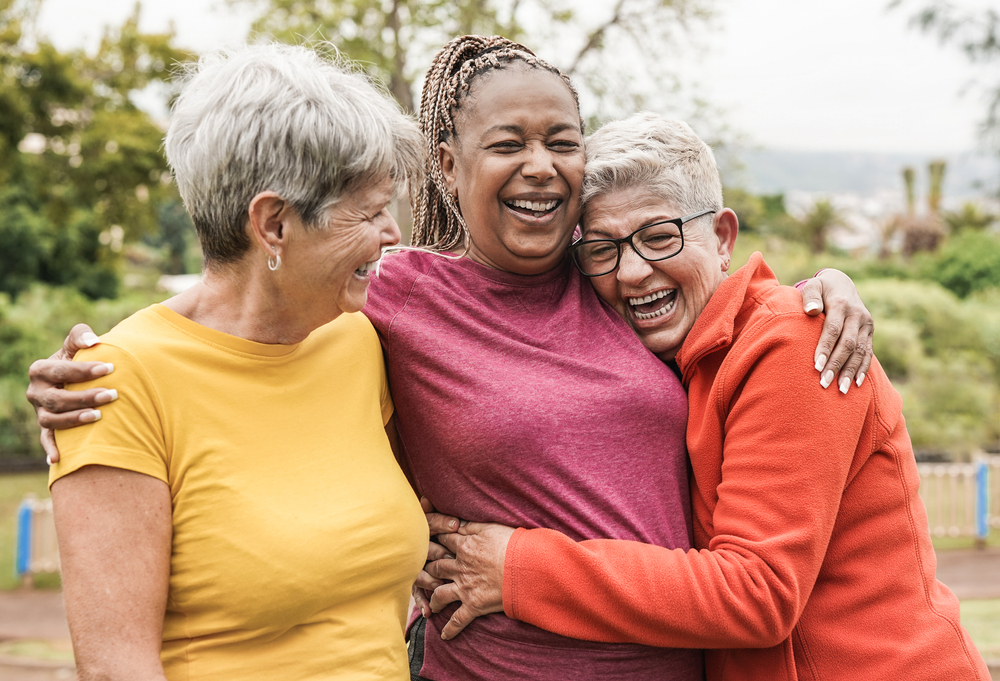People live longer now than in my childhood. We hear of people reaching close to 100 frequently; however, the average longevity for American women is much lower--77.28; though depending on what research one views, the age differs. Each of us belongs to a small slice of the population, and there is no data for each particular segment. Medical care is spotty in the United States, correlated with environment, income, and educational level. COVID-19 and the opoid epidemic have negatively influenced longevity as well. A quick Google check for predictors for longevity adds the following factors: parental longevity, environment, present age, muscle strength and mass, and balance.
My sister and I frequently discuss the differences between our grandmothers' lives and ours. Certainly, our grandmothers were elderly or old ladies at our ages of 69 and 72. They wore matronly dresses; a certain type of tie shoe with medium heels; and coats, hats, and gloves. They walked in a manner befitting their age, took public transportation, and carried what they could manage in mesh, reusable shopping bags. One of our grandmothers--Kaethe--was quick and active--and took care of others as a way of life. Trude, on the other hand, was quieter, slower, and spent more time reading, listening to the news, and doing crossword puzzles.
Our mother, Eva, fit in between. She drove, viewed herself as young until she was 80+, received a Bachelor's degree at 73,and dressed in contemporary styles. She traveled more frequently than Kaethe and Trude. Eva was not a baby boomer. She did not worry about her diet. Eva did not overeat, and she watched her weight. In her older age, she started walking for exercise--but no gym workouts, fitness trainers, or yoga.
My sister and I are the age of our grandmothers when we were teenagers in the mid to late sixties and early seventies. We are old. Though we do not feel "old," whatever that means. We get tired easier and move slower; but we exercise, travel, drive, and run around doing too much. I try to squeeze in as much life as I am able. My mother did the same, as my sister does too. I think my grandmothers accepted their stage in life; more recent generations not so much.
My grandmothers settled into their age because they admitted that their problems were part of the aging process. So did their physicians. Kaethe had angina. She did not sit around, but she knew her heart was not working as well as it should. When she had pain, she took her pill and went on. Trude had high blood pressure. Cognizant of the fact, she reduced her salt intake but that was that. My mother had high cholesterol but she still ate butter.
Baby boomers are obsessed with their diets--low salt for me, low sugar for my sister, low cholesterol and carbs for both. The admonitions and moderations to our diet increase as the years advance. Fitness trainers for strength and balance for me and pilates and yoga for my sister fill our schedule. Even at 72, I think twice, thrice about eating bread and desserts. And weight/body configuration--what is normal for my age? I judge myself by the same standards as I used when I was younger, though I know my shape has altered.
There is nothing wrong about improving one's quality of life. I certainly do not want to sit in a recliner 24-7, but will the stringent controls increase the years we have left? Sometimes maybe, often no. The dark cloud hovering over all of us is cancer. Cancer is our scourage, our plague. Let us not fool ourselves. Good news and bad about cancer punctures our emotional well being nearly daily. One person experiences success with treatment; others do not. People live with cancer as a chronic disease, and those are the lucky ones.
I try to conceal my worst physical flaws; I watch what I eat; and exercise moderately. But, I will not masquerade as a young person. That to me is far worse than "looking old." We have all seen the outrageous outfits and hair styles worn by some older women and men.
I am old, maybe not oldest. Older--is that better? Old sounds like yogurt past its expiration date. Most of my life has been lived. Why do we have to be fixed by doctors all the time? I take so many pills, I sometimes forget, "did I take that one?"
Then there's hydration. Water, drink water. O.K, I do as I am told. My mother said coffee is liquid. And certainly my grandmothers were not running around with reusable containers. By the way, they both lived into their early 80's.




